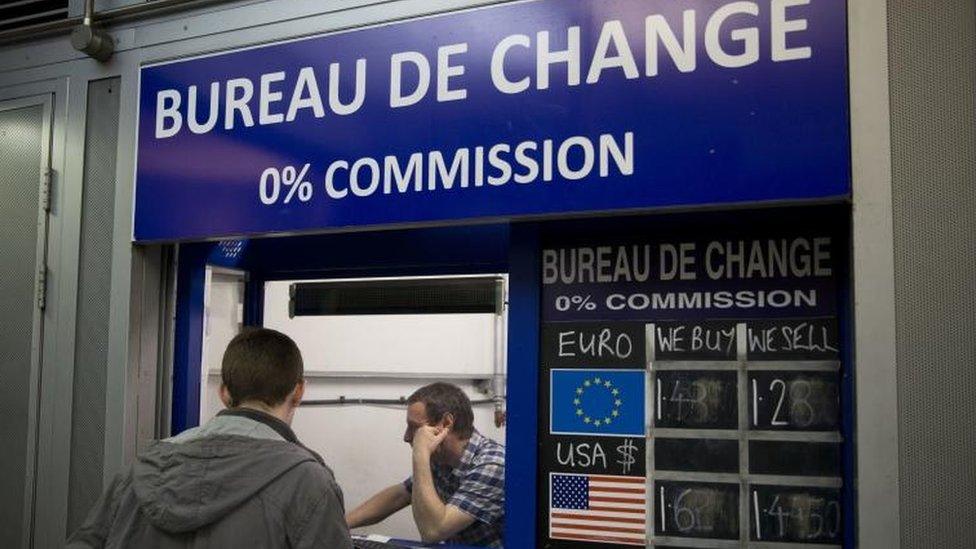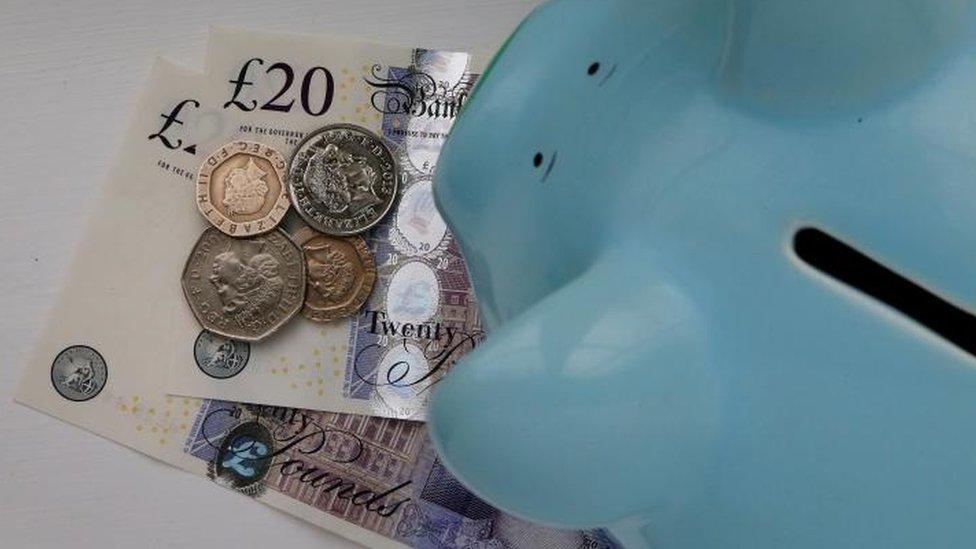EU Referendum: Five changes to your finances following the vote
- Published

An immediate impact on some - but not all - elements of our finances has been felt following the UK's vote to leave the EU.
Some of the changes may well only be temporary but experts say that they should be taken into consideration when making money choices.
Further, more fundamental, changes are expected when the UK negotiates the terms of its exit from the EU.
In the intervening months, the health of the UK economy will be key.
So, in the short term, this is what has changed:

1. Holiday money
For every £100 exchanged by UK holidaymakers, they are receiving the equivalent of £9 less in euros or £12 less in US dollars now than they did before the vote.
The fall in the value of the pound is the clearest change to our finances as a result of the referendum decision.
The pound hit a 31-year low against the dollar on Monday.

2. Retirement income
Many thousands of people who have saved for a retirement use these funds to buy an annuity - a regular income for the rest of their life.
The rates available, in other words that income that can be bought from these savings, have been falling steadily over the last year.
"The events of the past couple of days have given new momentum to that trend," said Tom McPhail, head of retirement policy at Hargreaves Lansdown.
Two major providers cut annuity rates on Monday, with one reducing rates by about two percentage points.
Buying an annuity is a one-off decision. Once an annuity is bought, then there is no going back, so timing is key, experts say.


3. Investments
Uncertainty has created volatility in the markets - with the value of banks and some housebuilders being particularly badly hit.
Investors may have seen the value of their portfolios fall, but clearly it depends on where they have put their money.
For example, the price of gold hit a two-year high on Friday. The gold price often rises in times of uncertainty as it is viewed as a haven asset.
Investments are long-term decisions, so they may recover their value in time.

4. Housing outlook
This is slightly more difficult to judge, but swap rates - which are often the precursor to changing mortgage rates - have been falling since the vote to leave the EU.
If mortgage interest rates follow, then housebuyers and those remortgaging may see the cost of their monthly repayments become a bit cheaper.
Rates have been at historically low levels in recent times, but lenders may decide that cheaper rates are needed to tempt what may be a smaller pool of first-time buyers, movers and those looking to remortgage.
The view on the markets is that the housing sector, particularly in London, will be hit by uncertainty. Any fall in house prices would be welcomed by first-time buyers.

5. Petrol prices
The Petrol Retailers Association and the AA motoring organisation has warned drivers that a 2p to 3p increase in the cost of a litre of fuel should be expected by the end of the week.
The latest figures from Experian Catalist show that there has only been a very slight rise over the weekend but, as wholesale fuel prices are quoted in dollars, the falling value of the pound means the cost at the pumps is likely to rise.


And here are some fundamental factors affecting our personal finances that have not changed:
Safety of savings
Although protection is based on an EU agreed level, the first £75,000 of savings per person, per institution is protected and safe should a bank, building society or credit union go bust.
Interest rates
The Bank of England's Monetary Policy Committee has not made any emergency change to the Bank rate which is at its record low of 0.5%. The committee next meets in the middle of July. Were there to be a cut, then borrowers could see better deals but savers could get lower returns. The opposite is true if the MPC decided to raise the Bank rate. The rate has been unchanged since 2009.
Taxes
HM Revenue and Customs has put a recorded message on its helpline stressing that taxes, tax credits and child benefits remain the same. "Everything is continuing as normal. No laws have changed," the message says.
Availability of cash
Cash machines have been kept topped up, according to Link - the network for the majority of the ATMs in the UK. "As far as we can see across the Link network, there is no evidence of a rush for cash and volumes and values are within normal ranges for this time of year," it said. "Compared to the same weekend last year Link volumes were down 4% and values by 6%, however poor weather, the European football championships, international rugby matches and month end being two days later in the week will probably have accounted for much of this change."
- Published24 June 2016

- Published27 June 2016
